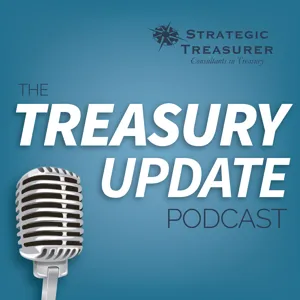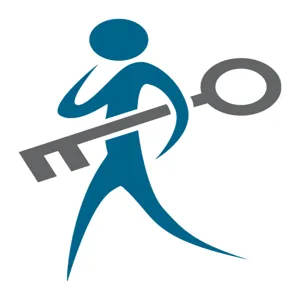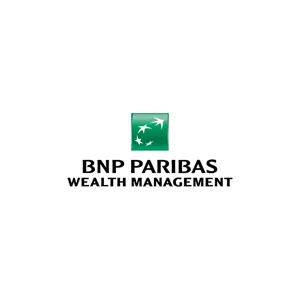Podcast Summary
Transitioning from sell side to buy side: The buy side requires a different mindset and approach, focusing on avoiding losses and making strategic investments, with careful consideration of position size and timing. Understanding economic moats and their market pricing is essential for success.
Learning from this podcast episode is that the transition from the sell side to the buy side involves significant differences in mindset and approach. On the sell side, analysts are paid to generate ideas and say "yes," while on the buy side, portfolio managers are paid to avoid losses and make thoughtful, strategic investments. This means that the buy side process is more nuanced and requires careful consideration of position size and timing. The conversation between Patrick O'Shaughnessy and Pat Dorsey also delves into the concept of economic moats, which are sustainable competitive advantages that allow companies to generate outsized returns over time. Understanding moats and how they are priced in the market is crucial for successful investing.
Understanding a Business's Competitive Advantage - The Economic Moat: Intangible assets like brands, patents, licenses, and regulatory advantages can create a business's economic moat, providing pricing power and high returns on capital. However, it's essential to ensure these assets translate into real-world advantages and not just marketing claims. Identifying and measuring moats is crucial for informed investment decisions.
A business's economic moat, or competitive advantage, is a structural characteristic that insulates the business from competition and enables high returns on invested capital. Intangible assets like brands, patents, licenses, and regulatory advantages can create moats by giving companies pricing power. However, it's essential to ensure that these intangible assets actually translate into real-world advantages and aren't just empty marketing claims. The existence and strength of a moat can vary greatly across different industries, with some sectors having numerous competitive advantages and others being challenging. As investors, it's crucial to identify and measure moats to make informed investment decisions. The moat concept is often overlooked in finance textbooks and sell-side research, but it's a critical factor in understanding a business's long-term potential.
Brand Value: Positional vs Trust: Brands create value by conferring trust or establishing positional value. Established brands must adapt to new market realities and maintain agility to stay competitive.
The durability and value of a brand depend on its ability to create positional value or confer trust to consumers. Brands that create positional value, like Rolex, rely on their association with wealth and status. Brands that confer trust, like Moody's bond rating, leverage social proof and history to add value beyond their actual cost. However, the landscape for building and maintaining durable brands has changed with the rise of digital media. Brands that reduce search costs, like Tide, are more susceptible to disruption. Amazon, a relatively new brand, has proven that trust can be established online through a superior user experience. When evaluating a brand's moat and durability, it's essential to consider its ability to create value, the barriers to entry, and the impact of changing consumer behavior and technology. That being said, even the most established brands must remain agile and adapt to new market realities to maintain their position.
Businesses with high switching costs maintain consumer loyalty by improving products and delivering value: Companies can leverage switching costs and network effects to keep consumers loyal by continuously improving their offerings and understanding the value added by new users
Businesses with high switching costs or captive consumers have the incentive to abuse their position by exercising excessive pricing power. However, the most effective way for such businesses to maintain consumer loyalty is by reinvesting in improving the product and delivering value. Companies like Microsoft and AVEVA are good examples of firms that have managed switching costs the right way. Microsoft's ability to link in and hook up to other things that people use has kept it strong, despite the usability of other products being preferred. AVEVA, which makes high-end AutoCAD software, has allowed its customers to flex down their spend during cyclical downturns, preventing the loss of all business. Network effects, where the value of a product or service increases as more people use it, are another way for businesses to maintain consumer loyalty. Network effects can be seen in obvious examples like Facebook, but also in more subtle ways. The key is for businesses to consider how the addition of more users adds value to existing users. Radial networks, which have more hub and spoke structures, are vulnerable to lower-cost competitors on specific lanes. Therefore, understanding the nature of network effects and how to leverage them effectively is crucial for businesses to maintain their competitive edge.
Understanding Moat's Durability and Sustainability: Moats depend on factors like network effects, scale, experience, and niche expertise. Evaluate each company's unique combination of moats to build an investing framework.
A moat's durability and sustainability depend on various factors beyond just having a large number of locations or a dominant market share. The distinction between a radially networked business, like Western Union, and a dispersed network like Facebook, is crucial in understanding the competitive landscape. Scale, in the form of data and research and development investments, is increasingly important in creating defensible moats. However, experience and niche expertise are often undervalued and can create significant barriers to entry. To build an investing framework around these factors, it's essential to objectively evaluate each company's moats based on their unique combination of brand, network effects, cost advantages, and experience. The presence of multiple moats can strengthen a business, but having one strong moat is not necessarily inferior. The key is to understand the specific nature and value of each moat in the context of the business and industry.
Identifying and maximizing a company's moat is crucial for investment success: Look beyond the obvious network effects to identify undervalued companies with growing moats, and focus on their unique ability to monetize their advantages from the advertiser's perspective.
Identifying and maximizing a company's moat, or competitive advantage, is crucial for long-term investment success. The most valuable moats are those that can be reinvested in at increasingly higher rates of return each year. This is where the real alpha lies, as the market may not fully appreciate the value of these moats. For example, while well-known companies like Coca-Cola have stable moats, their reinvestment potential is limited due to the need to pay out cash to shareholders. On the other hand, younger companies with growing moats, such as Facebook, offer greater potential for higher returns on reinvested capital. To identify undervalued companies, it's essential to look beyond the obvious network effects and consider how they can be monetized. In the case of Facebook, the real alpha comes from analyzing the platform from the advertiser's perspective, focusing on its unique ability to reach consumers in ways other platforms cannot. Moreover, while traditional statistical valuation methods can provide useful insights, they may not fully capture the potential of companies with moats that compound over time. Instead, investors should focus on the future potential of these companies and the returns they can generate, rather than relying solely on historical data.
Understanding a business's economics, moat, and capital allocation for successful investment strategies: To invest successfully, analyze a business's revenue growth, costs, user engagement, focus on customers, and network effects or high switching costs. Ensure capital allocations align with the business's strategy and moat.
Understanding the core economics of a business and its competitive moat is crucial for successful investment strategies. The qualitative characteristics of a business, such as its history of ownership and operating leverage, can provide valuable insights that statistical analysis may overlook. For instance, Mastercard's high revenue growth comes with low costs, while Facebook's user engagement is essential for its advertising revenue. Amazon's focus on making customers' lives easier is a successful strategy that strengthens its moat. When considering a business's moat, it's essential to understand its nature, such as network effects or high customer switching costs. If starting a business, a guaranteed network effect would be the most intriguing dimension of a moat due to its self-growing nature. High customer switching costs also provide significant pricing power and are essential for businesses that become integral to their customers' lives. Capital allocation is a critical aspect of maximizing the value of a business with a moat. It's essential to ensure that investments align with the business's strategy and moat, rather than creating new businesses or buying similar ones that may not add value. Ultimately, successful investment strategies require a deep understanding of a business's economics, moat, and capital allocation.
Identifying undervalued positional value brands: Investing in undervalued positional value brands with a thoughtful capital allocation strategy can yield significant returns for investors.
Identifying undervalued positional value brands and investing in them when statistically cheap, while considering the longer-term growth perspective, can yield significant returns for investors. However, it's crucial to remember that a great business can still be negatively impacted by an ineffective capital allocation plan or poor management of generated capital. Thoughtfulness is key when it comes to capital allocation, as every business requires a customized approach to maximize future returns. Whether it's through dividends, buybacks, or strategic acquisitions, a thoughtful capital allocation strategy can create value for shareholders. Conversely, a one-size-fits-all approach or lack of consideration for a business's unique circumstances can lead to missed opportunities or even losses.
Thoughtful capital allocation involves strategic variance: Companies with strategic capital allocation policies, particularly in share buybacks and acquisitions, tend to outperform. Independent thinking and clear hurdle rates are essential.
Thoughtful capital allocation in businesses involves more than just following the crowd or maintaining a steady state. Companies that exhibit a higher level of variance in their capital allocation policies, particularly in areas like share buybacks, tend to outperform. This variance can come from making strategic acquisitions or adjusting capital allocation based on the highest return opportunity. However, it's essential to have a clear, absolute hurdle rate for investment decisions and avoid being swayed by relative hurdles like beating WACC. Independent thinking and the willingness to make decisions that may initially seem optically stupid but later prove to be smart are also crucial attributes for thoughtful capital allocators. Amazon's introduction of Amazon Prime with free shipping as a membership model is a good example of a decision that initially faced criticism but ultimately proved to be a successful strategy.
Eliminating Unfit Businesses and Focusing on Industries with Good Economics: To invest successfully, narrow down potential investments by eliminating unfit businesses in industries with structurally awful economics and focus on industries with good economic fundamentals, such as payment networks, vertical market software, exchanges, positional goods, and luxury brands.
The process of investing involves winnowing down an initial universe of potential investments through a series of stages. The first step is to eliminate businesses that do not fit your investment criteria, such as those in industries with structurally awful economics or those with no growth potential. Next, focus on industries with businesses that have structural tailwinds and good economic fundamentals. Examples of such industries include payment networks, vertical market software, exchanges, positional goods, and luxury brands. Good economics refers to businesses that have high returns on capital and the ability to reinvest those returns, either by growing market share in a market that's not growing or by keeping market share while the market grows quickly. Ultimately, the goal is to identify businesses that can grow the pie over time and make smart capital allocation decisions.
Leadership and business strategies vary between industries and cultures: Understanding industry nuances and company culture is crucial for effective leadership and successful business strategies
Effective leadership and successful business strategies can greatly differ depending on the industry and company culture. Jeff Bezos's leadership style at Amazon, focused on consumer delight, might not translate to a business like Constellation, which nurtures independent teams and focuses on internal capital allocation. Mark Leonard, with his expertise in VMS software, could potentially turn around underperforming companies in the industry, such as Blackbaud, due to his nuanced understanding of what drives success in that specific sector. The ability to assess a company's sales culture, including the familiarity of employees with various departments, can also provide valuable insights into a company's potential for growth.
Maximizing Resources in Portfolio Management: Effective research and decision-making in portfolio management involves a team-based process, initial idea generation, a first pass memo, and team-based decision-making to save time and resources. Diversity and mentorship are key to success.
Effective research and investment decision-making in the world of portfolio management requires a thoughtful, team-based process that maximizes the use of time and resources. The speaker outlined a process that includes initial idea generation, a first pass memo to determine investment potential, and a team-based decision-making process for further investigation. They emphasized the importance of diversity in the team to avoid groupthink and the value of giving team members multiple opportunities to say no to save time and resources. The speaker also shared a personal story about the kindness of a professor who invited him to be an adjjunct professor for a day, highlighting the importance of mentorship and collaboration in the profession.
The importance of mentoring future professionals: Making time for the next generation, regardless of personal gain, is crucial for the growth and success of the investment industry.
The importance of mentorship and making time for the next generation in the investment industry. The guest shared an experience where he made time for some young investors, despite having no personal benefit, and emphasized the importance of passing on knowledge to those who will likely surpass us in the future. He also reflected on his own experience of not having a mentor and wished he had reached out to those he respected. This conversation highlights the significance of kindness and investing time in the development of future professionals, ultimately ensuring the growth and success of the industry as a whole.






In today’s podcast, we’ll hear from Paul Galloway, Senior Director, Advisory Services at Strategic Treasurer on what Capital Management is, why the structure matters, and optimization. Listen in to learn more.